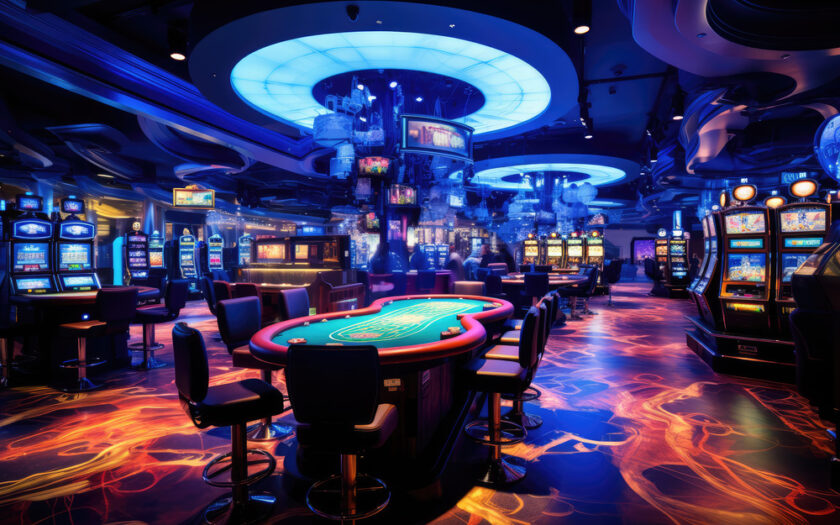In examining the gambling industry, it is essential to consider the intricate relationship between online casinos and traditional brick-and-mortar establishments.
The impact of online casinos on their traditional counterparts extends beyond mere rivalry and encompasses significant shifts in consumer preferences and revenue generation.
The continuous evolution of the gambling landscape raises questions about how traditional casinos will adapt to the challenges brought about by the increasing prominence of digital gaming platforms.
Rise of Online Casino Popularity
The rise in popularity of online casinos in the past decade can be attributed to the convenience and accessibility they offer to players globally. The ability to access a variety of casino games from home eliminates the need to visit physical gambling establishments.
The availability of a wide selection of games, appealing bonuses, and the flexibility to play at any time of day contribute to the growing interest in online casinos. Technological advancements have also enhanced the online gaming experience, providing a more immersive and interactive platform that simulates a real casino environment.
With just a few clicks, players can engage in a virtual world of entertainment and gaming options.
Shift in Consumer Behavior
The rise of online casinos has caused a significant change in consumer behavior within the gambling industry. Players now have the option to enjoy their favorite games conveniently from their own homes, leading to a decline in visits to traditional brick-and-mortar casinos.
The convenience of online gambling has attracted a new demographic of players who value the flexibility and accessibility it offers. Moreover, the wide range of games available on online platforms has encouraged consumers to explore diverse options beyond what traditional casinos can offer.
This shift towards online casinos has prompted traditional establishments to adjust their strategies to retain existing customers and appeal to new ones in the changing landscape of the gambling industry.
Revenue Challenges for Traditional Casinos
The landscape of traditional casinos is undergoing significant revenue challenges primarily due to the rising popularity of online gambling platforms. This shift in consumer behavior has resulted in a noticeable decline in profits for brick-and-mortar casinos. The convenience and accessibility offered by online casinos have attracted many patrons away from the traditional casino setting, leading to a reduction in foot traffic and revenue for physical casinos.
Moreover, traditional casinos are facing the loss of loyal customers who’ve transitioned to online platforms for their gambling activities. This shift has made it challenging for traditional casinos to retain their customer base and attract new, younger players who are more inclined towards online gaming options.
To address the changing market dynamics, traditional casinos are under pressure to invest in developing their online offerings to remain competitive and relevant. This necessity to adapt to the digital landscape adds further strain on traditional casinos’ revenue streams as they navigate the evolving preferences of their audience.
Technological Adaptation in Gambling Industry
Adapting to the growing trend of online gambling, traditional casinos are integrating advanced technologies such as virtual reality (VR) and augmented reality (AR) into their services. These technological enhancements aim to offer players immersive gaming experiences that diverge from online platforms.
Moreover, casinos are developing mobile applications to enable remote gaming, enhancing convenience and accessibility for customers. Additionally, the implementation of data analytics and artificial intelligence (AI) is assisting casinos in tailoring marketing strategies and enhancing customer service.
Future Prospects for Brick-and-Mortar Casinos
In the evolving landscape of the gambling industry, brick-and-mortar casinos are poised to maintain a distinct presence. The future prospects for traditional casinos present a combination of challenges and opportunities:
-
Immersive Experiences: Advancements in technology are expected to enhance the immersive and engaging experiences for casino visitors.
-
Community Hub: Brick-and-mortar casinos are likely to continue serving as social hubs, facilitating gatherings and interactions among patrons.
-
Luxury and Extravagance: Casinos are anticipated to focus on providing luxurious amenities and extravagant entertainment to attract and retain visitors.
-
Culinary Delights: The introduction of gourmet dining options and world-class culinary experiences is expected to become a significant draw for casino patrons.
These factors are poised to be instrumental in shaping the future trajectory of brick-and-mortar casinos, ensuring their continued relevance in the dynamic gambling landscape.
Conclusion
The rise of online casinos has presented significant challenges for traditional gambling establishments. Changes in consumer behavior and increased competition have forced brick-and-mortar casinos to adapt to technological advancements in the industry in order to stay relevant and competitive. It is essential for these establishments to adjust their strategies and offerings to meet the evolving demands of modern players and secure their position in the ever-changing gambling landscape.

